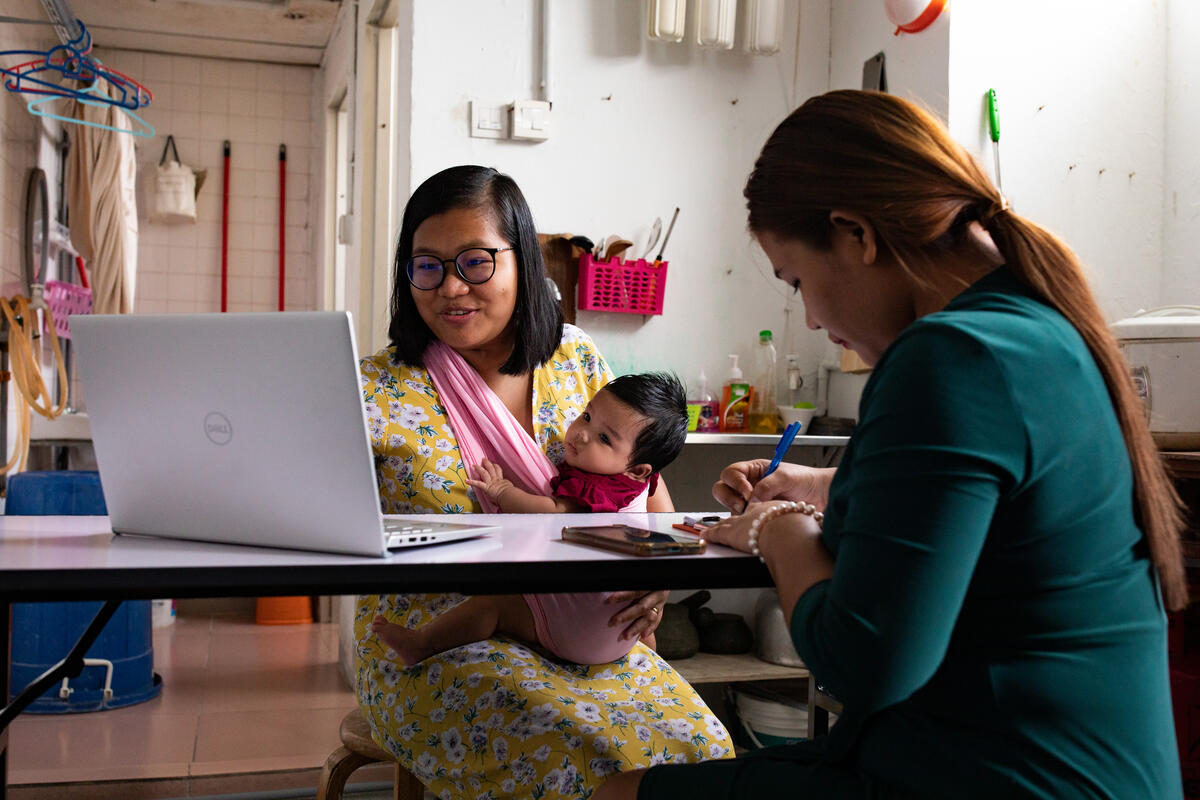Free Clinic In Kuala Lumpur Draws Nearly 700 Refugees
Free Clinic In Kuala Lumpur Draws Nearly 700 Refugees

KUALA LUMPUR, 20 December 2009 - Over 700 refugee women, men and children today received free health services from volunteer doctors and health practitioners, in a clinic organised by the UN Refugee Agency (UNHCR) and Malaysian partners.
Participating in this free one-day clinic were Malaysian Non-Governmental Organisations Obstetrical and Gynaecological Society Malaysia, the Ti-Ratana Welfare Society, the Lions Club Serdang and the Apec Club KL.
There are some 71,400 refugees and asylum-seekers registered with UNHCR in Malaysia. While refugees are able to access national helath care facilities, they are often inhibited by the cost and language barriers, and fear of moving around publicly in a foreign country. Free clinics such as this provide healthcare treatment and advice for refugees in a safe space and with interpreters.
The four NGOs provided services that included reproductive health services, including breast examination and pap smears, dental care, hearing tests, HIV/AIDS testing and counselling, de-worming for children and general health care screening such as for blood pressure.
The clinic was run entirely by volunteers, with some 80 Malaysian volunteers providing the various health services, and nearly 100 volunteers from the refugee communities on hand to assist and provide interpretation.
One of these refugee volunteers, Ling is a refugee medical coordinator who came to help his colleagues.
"When refugees need health care, it is sometimes quite difficult to get treatment because of the high charges at the hospital. That's why so many people came here today," he explained.
32 year-old Myanmar refugee Dim had been lining up with her family since dawn to access these free services. Her two young children aged four and two sit patiently by her side.
"I am here because my two-year old daughter has a fever since last night. But I would also like to have a medical check for my oldest son and for myself too," said Dim.
For many refugee women, prioritizing the healthcare of their baby was more important than their own health. Resource-strapped settings force them to choose between spending money for their children or for themselves. The free clinic was a chance for Dim to get her baby examined and to talk to a doctor about her own health concerns.
26-year old Chin refugee Angela was also one of the early arrivals to the clinic. She is eight months pregnant and had concerns about her ante-natal health. For most refugee women, a visit to a gynaecologist is a luxury they can not afford.
"I thought this free clinic would be a good opportunity for me to check my pregnancy," she said.






